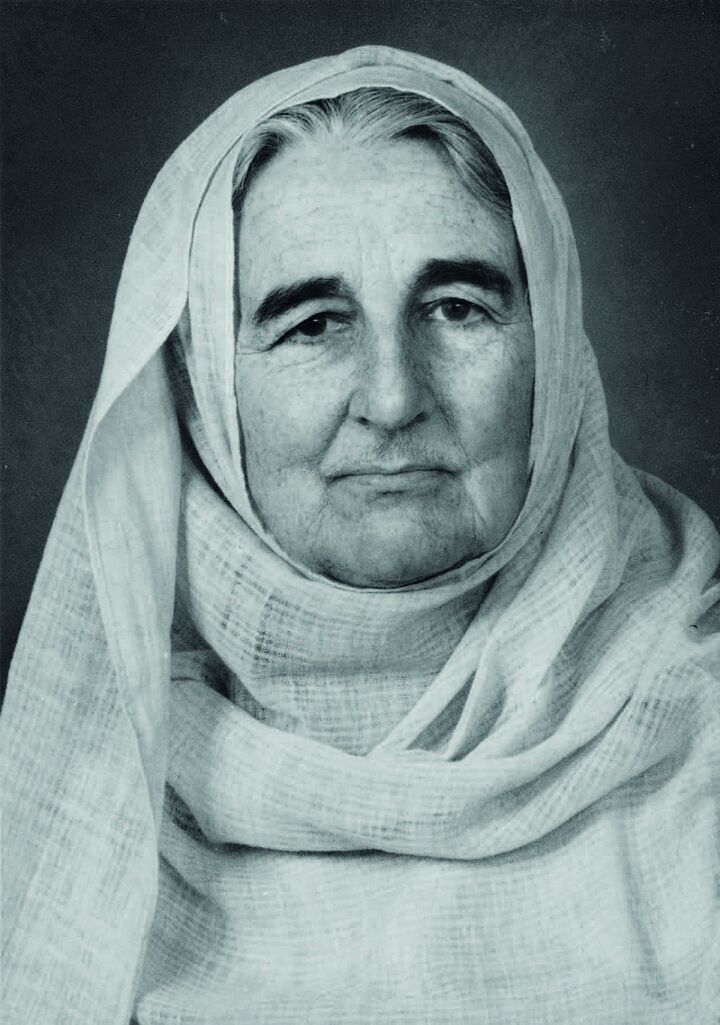Mittwoch, 03. Juli 2019, 14:00 - 18:00 iCal
Mirabehn after Gandhi
Launch of the Mirabehn Archive at the Library, Department of South Asian, Tibetan and Buddhist Studies
Seminarraum 1 des Instituts für Südasien-, Tibet- und Buddhismuskunde
Spitalgasse 2, Hof 2.7, 1090 Wien
Symposium
14:00 | Welcome by the Head of the Department Library, Sylvia Stapelfeldt
Address - H.E. the Ambassador of India to Austria and Montenegro, Renu Pall
Introduction - Martin Gaenszle
14:30 | Mirabehn in the Himalayas – Ecology, Community, and Aesthetics - Bidisha Mallik
15:30 | Coffee break
15:45 | Awakening the Himalayan People: Mirabehn and the Gandhian Legacy in Uttarakhand - Antje Linkenbach
16:45 | Mirabehn After Gandhi – Biographical Contextualisation
A Different Father?- „Impulsreferat“ by Christa Nebenführ
General Discussion
-------------------------------------------------------
Bidisha Mallik | University of Washington Tacoma
Mirabehn in the Himalayas: Ecology, Community, and Aesthetics
Mirabehn, the most famous European associate of Mohandas K. Gandhi, was also a progressive environmental thinker, a fact the world knows less about. She formulated perhaps one of the first environmentalist agenda in India, highlighting the social, ecological, and aesthetic constraints to development and unlimited economic growth. Her inspiration was responsible for the ecological consciousness that marked the rise of the Chipko Andolan (Embrace the Tree Movement) and the movement against the Tehri Dam in the Indian Himalayas. I contend that the psycho-cultural input of Mirabehn and her community development efforts from the 1940s to 1950s played a crucial role in inspiring and influencing these movements and in grounding wider views about nature, society, and sustainability amongst the mountain communities of northern India. I conclude that Mira Behn’s way of integrating ecological science with spiritual-aesthetic appreciation of nature and art, and the moral-political economy of a Gandhian Gram Swaraj constitutes a liberating environmental ethical practice, suitable for a post-industrial world.
----------------------------------------------------
Antje Linkenbach | Max-Weber-Kolleg, University of Erfurt
Awakening the Himalayan People: Mirabehn and the Gandhian Legacy in Uttarakhand
Mirabehn’s devotion and care for the Himalayan region and its people inspired many Gandhian activists in Uttarakhand. Her visions and advices for an ecologically sensitive advancement became core demands in the later protest movements and the eco-development work present in the region. In my presentation I will focus on the period from 1970 onwards and give an idea about the awakening of the hill population, the struggles they fought and the visions they had (and still have) for a local modernity and a preferred future. I will briefly talk about the Chipko movement, the protest against the Tehri Dam and the Gandhian alternative development work, but then concentrate on the autonomy movement for a separate state, which somehow bundled previous demands, framed with a far-reaching imaginary of a radical democracy. While the movement was formally successful, the political vision and the dream of a people-centred ecologically sound mountain state never materialized. In fact, after the establishment of the new state the ‘dharmic land’ became subordinated to the logic of the mainstream model of economic growth. I will end with a brief outlook to the new Char Dham infrastructure project. With this ‘dream project’ of the central government, human hybris has reached its latest climax.
-------------------------------------------
Christa Nebenführ | Writer and Radio Journalist, Radio Ö1, Vienna
A Different Father?
While investigating the life of Mahatma Gandhi‘s companion Madeleine Slade one notices the ambiguity in her decision on how to live. Mirabehn – as Gandhi named her – gave up a possible motherhood, her fathers and her fatherland‘s interests, and submitted herself to a symbolic father: that was “Bapu/Father” – as Mahatma Gandhi was called in India by his followers. Through a short sketch of her life I will try to analyse the discrepancy between emancipation and affirmation in her choices.
Zur Webseite der Veranstaltung
Veranstalter
CIRDIS & Institut für Südasien-, Tibet- und Buddhismuskunde
Kontakt
Judith Starecek
Institut für Südasien-, Tibet- und Buddhismuskunde
4277 43502
judith.starecek@univie.ac.at
Erstellt am Montag, 24. Juni 2019, 14:48
Letzte Änderung am Dienstag, 25. Juni 2019, 09:43

